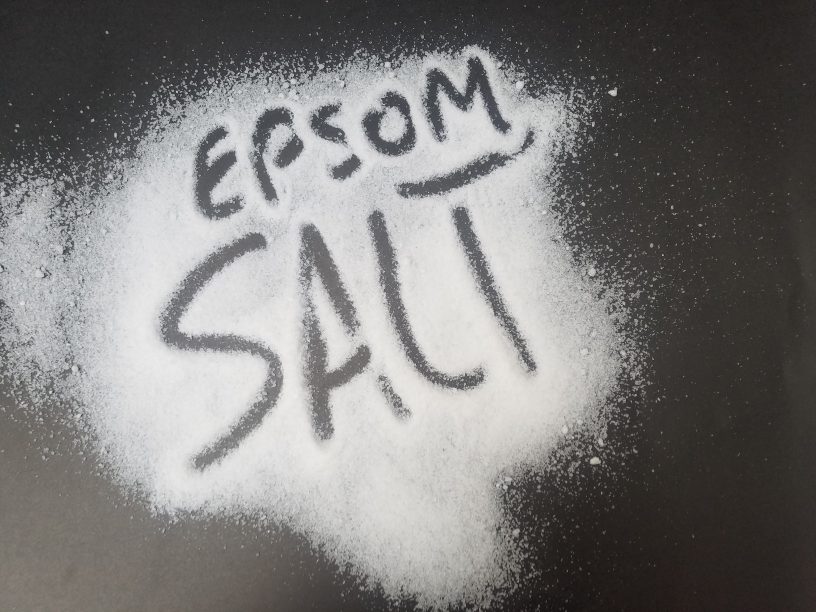University of Maryland Medical on Epsom Salt Uses
Epsom Salt Uses according to The University of Maryland Medical Center ‘Every organ in the body — especially the heart, muscles, and kidneys — needs the mineral magnesium.’ ‘Most important, it activates enzymes, contributes to energy production, and helps regulate calcium levels, as well as copper, zinc, potassium, vitamin D, and other important nutrients in the body.’
Mao Shing Ni, Ph.D. on Epsom Salt Uses
Mao Shing Ni, Ph.D., DOM., doctor of acupuncture and Chinese medicine, and author of Secrets of Longevity: Hundreds of Ways to Live to Be 100 do recommend Epsom salts to patients because they’ve heard positive feedback anecdotally. “It’s perfectly safe,” he says. “You don’t want to take them every day for the rest of your life, but you can take temporarily to relieve pain and cramps.”
Amy Baxter, MD, on Epsom Salt Uses
Magnesium has been shown to block NDMA receptors, which tell your brain when you’re hurt, says Amy Baxter, MD, founder and CEO of MMJ Labs, and clinical associate professor with the Medical College of Georgia. “If you block those receptors, they don’t get the message that you’re hurt,” she says. “Magnesium blocks the receptors, so you perceive pain less.” Plus, research shows magnesium could fight inflammation, and studies have even found that taking magnesium sulfate through an IV could help soothe migraines, treat asthma, and even boost stroke recovery. So it seems to make sense that soaking in a big bath of magnesium could treat a host of health problems.
Dr. David Jockers DC on Epsom Salt Uses
Dr. David Jockers DC, MS, CSCS who is a doctor of natural medicine, functional nutritionist and corrective care chiropractor. He currently owns and operates Exodus Health Center in Kennesaw, Georgia. He says “Magnesium can also improve cancer patients overall wellbeing. Both the struggles of being a cancer patient as well as a lack of magnesium in the body are associated with symptoms of depression. Taking Epsom salt baths daily can help relieve symptoms of the illness and also reduce anxiety and irritability and improve sleep patterns.
Other symptoms such as constipation (a common side effect of chemotherapeutic drugs) can also be relieved by taking Epsom salt baths. Magnesium salt promotes gastric activity in the intestines which provides a laxative effect. The stimulation of movement in the gut and colon further promotes detoxification processes.
Sulfates are essential for the optimal health of joints, skin, and nervous tissue. When absorbed through the skin, sulfates can promote the health of these tissues. Sulfates also bind toxic impurities in the liver to render them less hazardous. Specifically, the sulfur component of sulfate salts is what binds to toxins, ensuring their elimination from the body.
The once fat-soluble toxin stored in the liver tissue is metabolized, becoming water soluble. It can then be effectively excreted as waste in urine. This detoxification pathway is referred to as Phase 2 liver detoxification, also known as the conjugation pathway. It is especially critical in cancer patients who have been overloaded with toxic chemotherapy drugs.
Phase 2 liver detoxification is dependent on co-factors such as sulfur to be absorbed by the body. In other words, without sulfur or other substances which bind to impurities, toxins from drugs and the environment accumulate and remain stored in the liver, causing dysfunction. When Phase 2 detoxification pathways are impaired, individuals may have symptoms of nausea, headaches and migraines, chronic fatigue, infections, chemical sensitivities, and bloating.
Cancer patients are particularly susceptible to these health concerns because of the high dose chemotherapeutic drugs used in treatment. Phase 2 detoxification pathways are involved in breaking down drugs and removing them from the body.”
To read More on Epsom Salt look to our article about Researches on Epsom Salt.
Also you can find out more about Epsom Salt using WebMD.





Leave a Reply